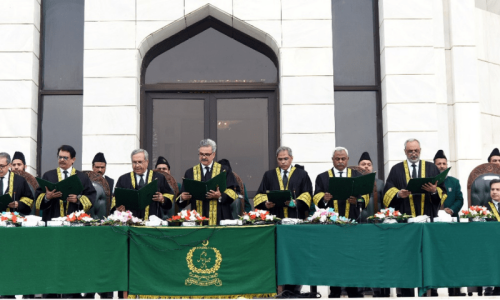THOUGH women’s suffrage has long been part of the political process in most Muslim and Arab countries, until now the Kingdom of Saudi Arabia had denied women the right to vote. In fact, elections themselves have been a rarity in the absolute monarchy. However, this may change if Saudi King Abdullah’s plans come to fruition. Perhaps affected by the still-blowing winds of the Arab Spring, the Saudi monarch declared on Sunday that women in the kingdom will be allowed to vote and stand for election in the future, though they would not be able to participate in the upcoming municipal polls. Women will also be appointed to the unelected, advisory Shura or consultative council. Saudi and international rights activists have welcomed the announcement, albeit cautiously. There is good reason for scepticism as it remains to be seen how the powerful conservative clergy and hard-liners within the royal family will react once women’s suffrage is actually put into practice. It must be remembered that Saudi Arabia is a country which has some ultra-conservative pockets, and where women still can’t drive or travel without a related male guardian.
In his six-year reign, King Abdullah has taken steps, such as expanding educational and employment opportunities, to allow women to integrate into national life. However, the pace of change in the kingdom has been glacial. Elsewhere in the region Qatar was the first Arab Gulf monarchy to give women the vote in 1999, and was followed by other members of the six-state Gulf Cooperation Council. Saudi Arabia has been the last GCC member to allow women’s suffrage. In general, the Gulf sheikhdoms have had mixed results with their experiments with democracy, so perhaps expecting too much too soon would be unreasonable. For example, in the recently held polls for the UAE advisory Federal National Council, many Emiratis questioned why only 129,000 nationals were handpicked by the state to vote. Yet it is welcome that the first small steps towards change are being taken. Granting voting rights to women may be a long overdue step, but in the Saudi context it is nothing short of revolutionary.










































